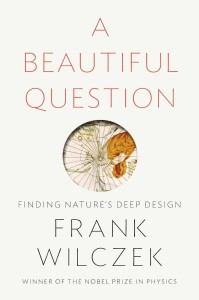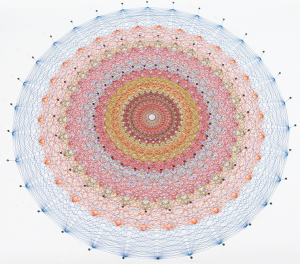‘Beauty Is Physics’ Secret Weapon’
‘I don’t think any of the received religions do justice to what I’ve discovered about the physical world.’
Nobel laureate and physicist Frank Wilczek maps his path to discovery.
‘You have to view the world in different ways to give it justice.’
‘That’s a central element of human life and should be central to a scientific worldview – to try to understand things whole.’
—
Nautilus
http://nautil.us/issue/32/space/beauty-is-physics-secret-weapon
We recognize beauty when we see it, right? Michelangelo’s David, Machu Picchu, an ocean sunrise. Could we say the same about the cosmos itself? Frank Wilczek, a professor of physics at the Massachusetts Institute of Technology, thinks we can.
[…]
At the frontiers of physics, we’re dealing with realms of the very small and the very large and the very strange. Everyday experience is not a good guide and experiments can be difficult and expensive. So the source of intuition is not so much from everyday experience or from a massive accumulation of facts, but from feelings about what would give the laws of nature more inner coherence and harmony. My work has been guided by trying to make the laws more beautiful.
Einstein was the decisive figure in bringing this second aspect of the beauty of nature—symmetry—to new heights. The theory of relativity is very much in the mold of change without change. You can look at the world from a moving platform and different things rushing at you or away from you will look quite different, but the same laws will apply as in the stationary frame. That’s the essence of the theory of relativity. You change the way things look and yet the laws are still valid.
[…]
Does the world embody beautiful ideas? You can look at that question in an enlightening way by looking at the history of people’s ideas about beauty before they knew the laws of physics and then compare that to what we’ve actually found. You get an enriched perspective on both art and science.
[…]
The concept that space is an empty, passive receptacle that has no inner life is totally wrong. In quantum mechanics, space has spontaneous activities. These are called “virtual particles.” Part of what I got the Nobel Prize for was figuring out how virtual particles affect the real particles we see.
{…]
Do you think science will ever crack the fundamental problem of how we get our mental world out of material stuff?
Yes, I do. How should I say it? I think we’re maybe 90 percent of the way there.


Leave a Reply